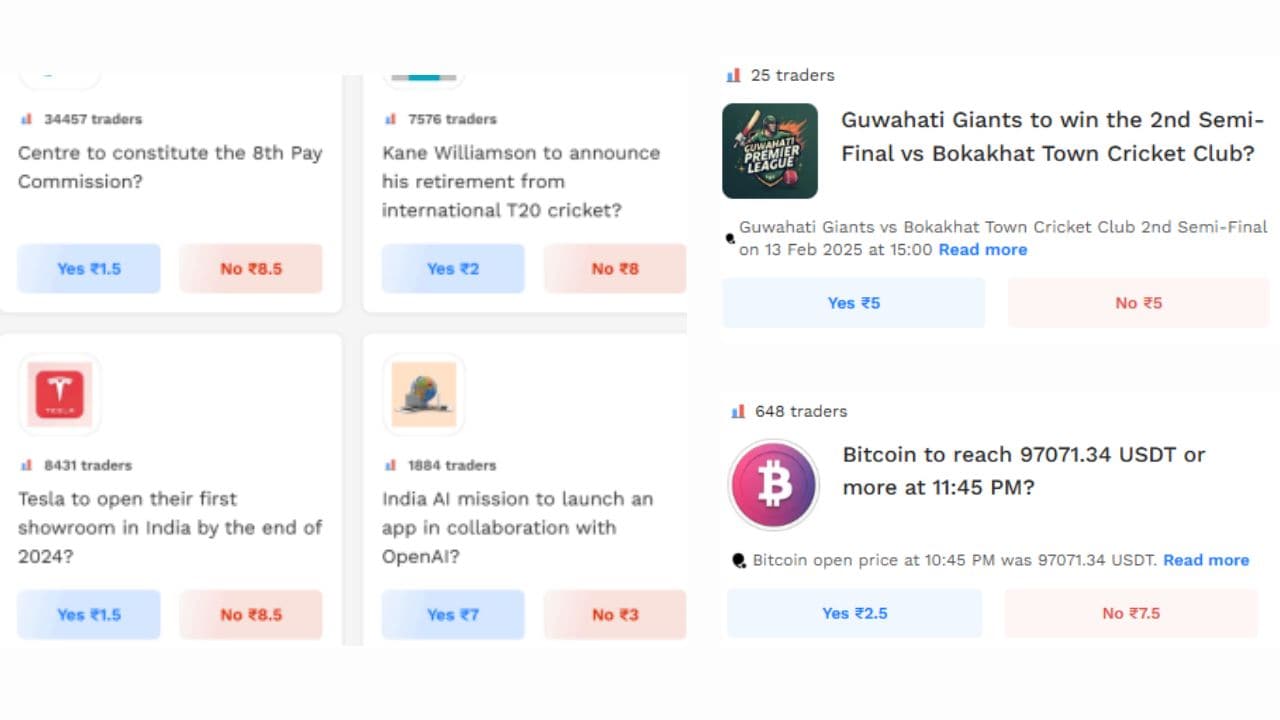The Chhattisgarh High Court, in an ongoing Public Interest Litigation filed by petitioner Sunil Namdeo, has directed both the state and central governments to clarify their stance and enforcement measures regarding illegal online betting platforms operating in the state, despite the Chhattisgarh Gambling (Prohibition) Act, 2022.
At a hearing on March 24, 2025, the petitioner, represented by advocate Amrito Das, submitted that several platforms, including those linked to ongoing advertisements, continue to violate the ban on online betting. The Court directed the Home Department’s Secretary to file a personal affidavit addressing these concerns.
Advocated Das cited a question posed on the opinion trading app whether a certain video on YouTube will reach a certain amount of likes to which the court remarked that there is no skill involved but is a sheer matter of chance.
In compliance with the Court’s directive, the Secretary filed an affidavit affirming the government’s commitment to curbing illegal gambling. The affidavit detailed the provisions of the 2022 Act, which defines and penalizes both physical and online gambling activities. It further revealed that from 2022 to February 2025, the Chhattisgarh police registered 444 cases involving online gambling, resulting in 1002 arrests and the seizure of over ₹2.19 crore.
Particularly notable was the mention of 77 cases filed against the controversial Mahadev Online Gambling platform. Of these, 46 are under trial, and 9 have resulted in convictions.
The affidavit also disclosed that while the petitioner had named platforms such as Probo, Better Opinions, Coolboost (Predchamp), TradeX, and Sports Baazi, no official complaints had been received against them. Cyber police investigations into these platforms are ongoing.
The petitioner’s counsel, however, questioned the consistency of the affidavit, suggesting it contained contradictory statements regarding enforcement actions. The State Advocate General defended the affidavit but sought additional time to present a detailed response.
Granting this request, the High Court has allowed the state three more weeks to file a comprehensive affidavit and has called upon the Union Government to submit its response as well. The matter is now scheduled for hearing on May 6, 2025.
It should be noted that globally, in countries like the United States, the United Kingdom, and Australia, opinion trading apps and websites are classified as wagering platforms and are regulated.
The unchecked rise of such games on real-money gaming platforms has also drawn the attention of the Ministry of Electronics and Information Technology (MeitY).
The Confederation of All India Traders (CAIT) had formally appealed to the Indian government, urging a ban on opinion trading apps and websites. In a letter addressed to Ashwini Vaishnaw, Minister of Electronics and Information Technology, and Piyush Goyal, Minister of Commerce and Industry, CAIT emphasized the potential risks posed by these platforms, calling them a form of “digital satta” (online gambling).
The absence of clear regulations for opinion-based gaming leaves a grey area that both players and platforms continue to exploit. Opinion based games appeal to a wide audience and generate substantial revenue, their similarity to wagering and gambling creates challenges for the broader RMG industry. It is imperative for the government, especially MeitY, to establish comprehensive guidelines to address these challenges.
